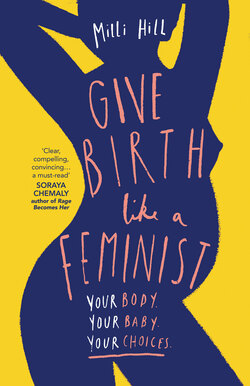Читать книгу Give Birth Like a Feminist - Милли Хилл - Страница 16
Love from a distance: life in the NICU
ОглавлениеThe early attachment of woman and baby is also low on the list of priorities when a baby is born prematurely. Common practice is for the baby to be taken to a special unit and placed in an incubator, with only a few pioneering neonatal units in the world doing things differently. In Uppsala, Sweden, Dr Uwe Ewald and colleagues encourage ‘kangaroo care’,[39] whereby the separation of the baby from their parent is kept to a minimum. His state-of-the-art unit places babies in skin-to-skin contact on the chests of their carers, out of the incubator and in bed or often in slings, with mobile monitors in the parent’s pocket. However, in Dr Ewald’s experience, parents will often detect issues several seconds ahead of the monitor. Ewald’s work is inspired by a focus on the rights of the child not to be separated from their parents, an understanding of early infant attachment – ‘Bonding is a bit more than just holding a finger,’ he points out – and an empathy for the experience of both the baby and the parents and the anguish of separation they may be feeling.
Dr Ewald’s way of thinking is highly unusual, however, and the majority of parents whose babies are in the NICU will be apart from them and will often feel the need to ask, ‘Am I allowed?’ ‘At the start we didn’t realise that we were actually able to touch her,’ said one mother. ‘Nobody told us we were allowed and we thought it was just the nurses who could. We didn’t hold her either because we didn’t realise we could.’ ‘I did not feel like she belonged to me,’ said another NICU mother, while another commented, ‘I felt like I was cluttering the place up because I hung out there so much.’[40]
Donna Booth, who founded the New Zealand organisation NUMB (Neonatal Unity for Mothers and Babies) after her own experience, told me of how the imbalanced power dynamic of the NICU made her feel assaulted. ‘My baby was born by caesarean and I had a general anaesthetic that I did not want. This was the first assault. The second assault happened when I was in recovery and NICU staff kept sending messages insisting on having my child’s name given to them to write in the notes and on the incubator – but I wanted to be the one to name this child when I recovered. The third assault was when I finally got to the NICU in a wheelchair and the nurse (probably thinking she was being welcoming and helpful) introduced me to my baby, taking the hat off the baby and telling me the hair colour and remarking on the fingers and toes. I wanted with all of my heart and soul to be the one to discover these things myself, to reclaim this time, to marvel in the gorgeousness of my perfect child; but she stole that from me. There were further assaults. Mothers like me who want to be with their babies are a challenge for the NICU. “Parents can visit any time” does not mean you can stay for twenty-four hours a day without some sort of resistance, punishment or even being positioned as somehow not right in the head.’
